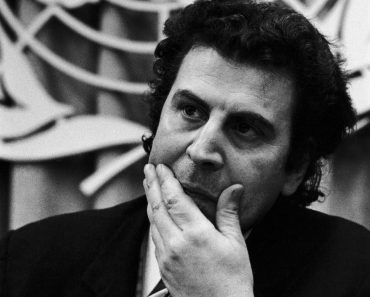The audience at the Greek Centre was treated to a celebration of two musical giants: Manos Hatzidakis and Mikis Theodorakis last Sunday.
Both born in 1925, they created songs that became the very fabric of Greek identity. Even a century after their births, their music continues to fill halls and stir souls.
From the first notes, it was clear this was more than a performance—it was a communal act of memory and celebration. Audience members, many of whom had clearly grown up with these songs, clapped, sang along, and at times shed quiet tears as melodies from their youth washed over them once more.
Musical Director Achilles Yiangoulli—who also played piano and sang—acknowledged the emotional and curatorial challenge of selecting songs from such vast repertoires. As he noted in his welcome address, “every piece is a gem,” and narrowing that down was no easy feat. Yet the program was beautifully balanced, moving between the lyrical, tender world of Hatzidakis and the fiery, revolutionary passion of Theodorakis.

Yiangoulli was joined by a superb ensemble of musicians: Tony Iliou on 12-string, classical, and folk guitars; Nick Koutsaliotis and Jacob Papadopoulos on bouzouki; Peter Neville on percussion; Wayne Simmons on bass; and vocalists Christina Theodosaki and Stav Thomopoulos. Each performer brought both technical skill and deep emotional connection to the stage.
The concert moved fluidly through eras and moods. Highlights included “Τα Παιδιά του Πειραιά,” made famous by Melina Mercouri and rendered here with smoky authenticity; the tender “Η μπαλάντα του ‘Ουρι”; and the haunting “Αγάπη που’γινες δίκοπο μαχαίρι.” The audience sang along, almost reverently, in a collective remembrance of a Greece that once was—or perhaps still lives in their hearts.
Katie Georgiou, who served as narrator, guiding listeners through the musical journey and historical background. Her presence was a vital thread connecting the songs to the broader narrative of 20th-century Greek cultural life.
In the Theodorakis segment, the emotional stakes lifted even higher. These were songs of struggle, defiance, and hope. The audience responded instinctively—many visibly moved—as the ensemble launched into “Χαρταετοί” from Iakovos Kambanellis theatrical work: “H γειτονιά των αγγέλων”. Stav Thomopoulos delivered a hauntingly beautiful rendition of “Το Γελαστό Παιδί,” evoking the spirit of the Athens Polytechnic uprising—a powerful tribute to the fall of the Military Junta and the rebirth of democracy.

Then came selections from Axion Esti, Theodorakis’ monumental oratorio. Even without a full symphonic orchestra, the spirit of resistance, dignity, and resilience rang true. The ensemble shone with subtlety and respect—no grandstanding, just a humble dedication to the music and what it means. The bouzoukis wept and laughed; the percussion pulsed like a heartbeat; and the voices—especially when harmonising—felt like the echo of generations past.
There was something deeply unifying in the air. The songs, many from the 1960s and 1970s, served not just as music but as time capsules—tracking people’s lives, loves, hopes, and heartbreaks.
In the end, this was not simply a concert. It was a musical homecoming—a chance to honour two composers who shaped Greek identity with their melodies, and to affirm that their work still lives vibrantly in the voices of those who remember, and even in the ears of those discovering it anew.A joyous, moving, and unforgettable tribute.







